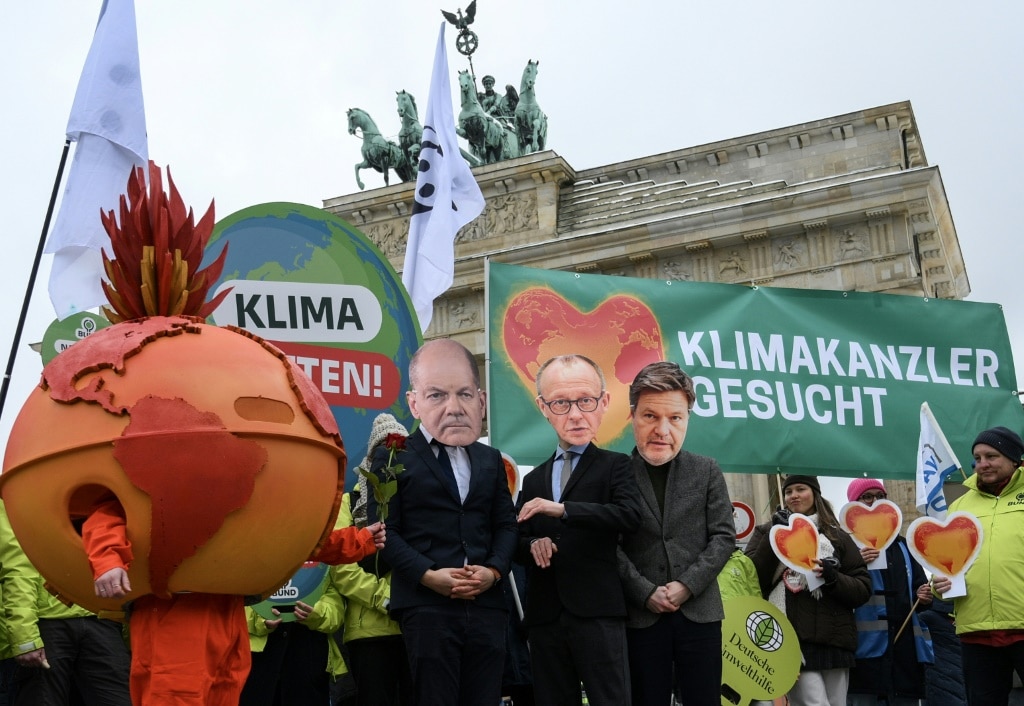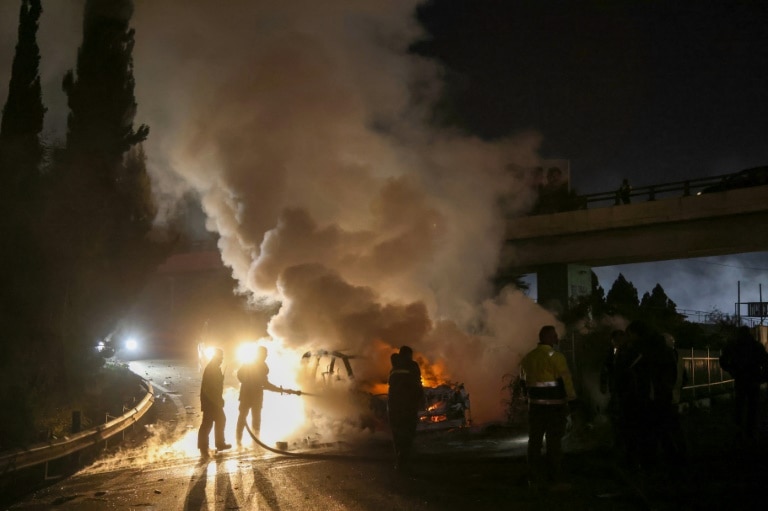'Fatal mistake': Activists say climate ignored in German polls
'Fatal mistake': Activists say climate ignored in German polls

German activists rallied on Friday to push the climate crisis up the agenda in an election campaign where the issue has been overshadowed by debates on immigration and the economy.
Thousands gathered in Berlin waving banners that read "vote for climate justice".
Other demonstrations also took place across the country.
"The topic of climate is clearly under-represented," protestor Fabian Pensel, 41, told AFP near the capital's Brandenburg Gate.
"The future of our planet is very important and far too little is said about it."
For years, there seemed to be a broad consensus in Germany society that major new measures were needed to fight climate change.
But resistance has grown amid questions about the cost of the energy transition for households.
During campaigning for the February 23 snap polls, mainstream parties have often appeared wary of bringing up the subject at all and, when they have, it has sometimes been to suggest slowing the pace of the transition.
Meanwhile the resurgent far-right Alternative for Germany (AfD), buoyed by the US presidential victory of climate change denier Donald Trump, has frequently attacked green policies.
It has taken particular aim at wind turbines, which it alleges are "windmills of shame" that blight the landscape.
"Fridays for Future", the group organising the demonstrations, said the main parties -- including the Greens -- had made a "fatal mistake" by not focusing on climate enough during the campaign for the election.
"We must not leave the question of climate protection policy to the right and right-wing extremists," said Carla Reemtsma, spokeswoman for the group's German branch.
The campaign has been dominated by debate over immigration following deadly attacks blamed on migrants and asylum seekers.
The latest was a car ramming that injured 36 people in Munich on Thursday. An Afghan man has been arrested as a suspect.
Worries about how to revive Europe's top economy, which has shrank for the past two years, have also been prominent.
- Shifting public mood -
When the climate has featured, politicians have sometimes sought to appease concerns among some voters that the shift towards green policies has been too quick.
Centre-right opposition leader Friedrich Merz, tipped to become the next chancellor, rejected the idea of phasing out coal and gas if the move might damage Germany's ailing industrial sector.
He has also spoken out against "green steel" produced using hydrogen, which he complains is costly, and railed against what he calls "ideological commitments in energy policy".
Still, both the CDU and Chancellor Olaf Scholz's SPD are aligned with the Greens in supporting Germany's current goal of achieving climate neutrality by 2045.
The mood was starkly different at the last German national election in 2021, when urging faster action to combat climate change was seen as more of a vote winner.
The Green party's popularity jumped, propelling it into Scholz's three-party ruling coalition, with one of its leading members, Robert Habeck, becoming both vice chancellor and minister for economy and climate action.
While Habeck enjoyed some successes in decarbonising the economy, he soon found himself attacked from both the left -- for not doing enough -- and the right -- for saddling households with extra costs.
His party has nevertheless held relatively steady in opinion polls on around 15 percent, and he still seeks to hammer home the importance of climate policies.
In an impassioned speech to parliament last week, Habeck said next week's election was vital for climate protection.
The vote is "not about the past but about how we shape the future", he told lawmakers.
Protesters in Berlin on Friday were also hoping to shift public attention towards the crucial topic of global heating.
"People may no longer feel this fire for the issue and it has been pushed a bit out of the political arena," Marie Wenger, a 26-year-old law student, told AFP.
"So it's all the more important that people still take to the streets today."
sr/jsk/gil



